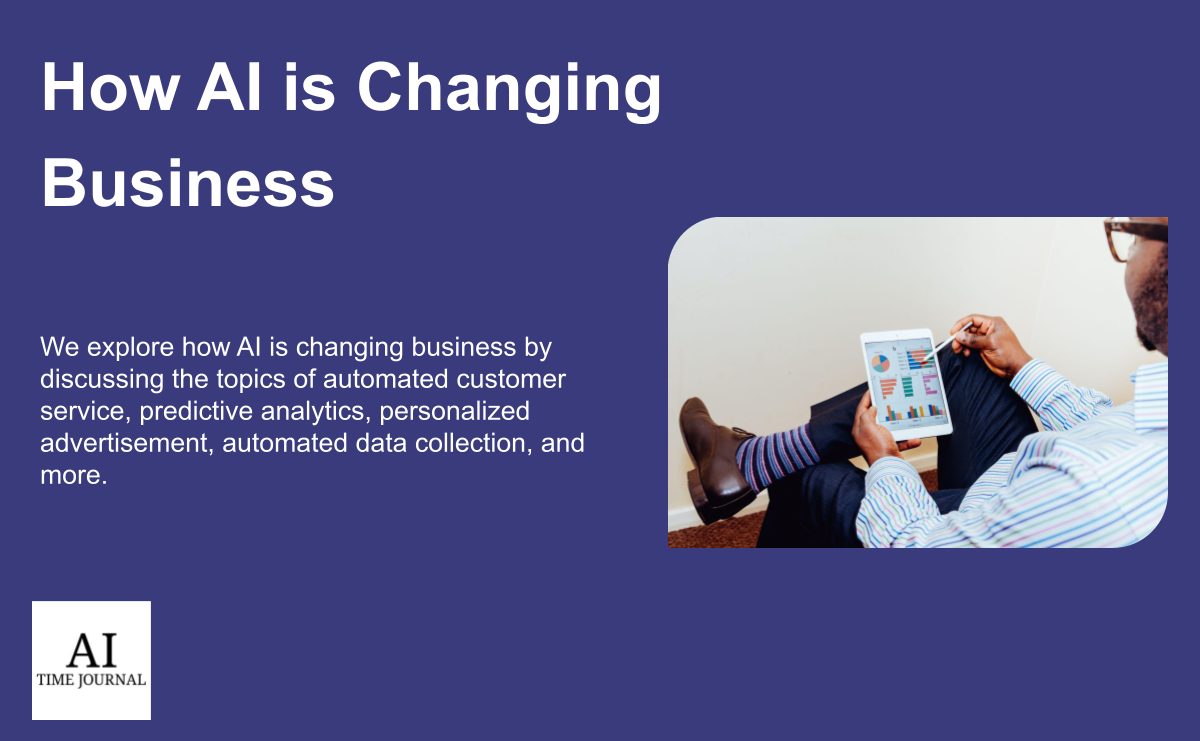
Artificial Intelligence has gradually walked into the business industry and brought new energy into everyone’s daily work. Companies are now using AI to collect information, analyze data, contact customers, and onboard employees. AI technologies and applications not only reduce the quantity of human labor input but also improve the quality of human labor, or we can say the efficiency of human labor, by facilitating the collaboration between AI and human agents.
With the increasingly important role played by AI in companies’ operations, changes are taking place in all departments in the business industry, such as PR, HR, Customer Service, and Advertising. In this article, we are going to talk about 3 main ways AI is changing business.
Better Customer Service to Improve Consumer Experience
Customer service is a critical department for a business since it conducts the closest and most frequent communication with customers. The quality of customer service can largely determine consumers’ first impression of the brand’s service altitude and the brand culture. In other words, customer service plays a significant role in building consumer loyalty.
Well, customer service is also a department that frequently receives criticism from customers. The points consumers often complain about it include:
- Rude employees
- Transferring from one agent to another
- Non-flexible customer service time and channel
Thanks to AI technologies, the application of chatbots in customer service helps to solve these complaints. First of all, conversational AI is always warm and friendly, and its polite tone usually provides a good start for a happy conversation. Automatic customer service takes over the tedious work from human agents, cutting the need for human labor and filtering more capable employees who are polite and good at solving complicated problems to stay. In this way, the quality of customer service will be highly improved.
Besides, with the Internet’s large memory, the chatbot system can remember the communication records and the feedback brought up by consumers. Usually, automatic customer service will lead the conversation step-by-step until the problem is solved, and its timeliness and uniformity of background information help consumers avoid voicing their complaints again and again.
Plus, automatic customer service can provide 24/7 service and omnichannel conversation. Consumers can contact customer service and get a response immediately with the live chat service supported by AI-powered chatbots. Instead of phone calls and email communications, social media and live chat on the website page now become more and more popular among customers.
To capture more incoming trends of AI-powered customer service, the article “5 Ways AI is Changing Customer Service” is a good reference.
Enhanced Time Management with AI-Powered Scheduling Platforms
Time management is also taken seriously in business operations. Before AI-powered time tracking platforms appeared in the business industry, employees usually used time sheets to record the tasks they did and the deadlines of upcoming projects. Well, the problems with the traditional time sheets are obvious, such as:
- Time-consuming
- Incarcerate and inconsistent information because of human errors
- Easy to be omitted without automatic deadline reminder
Thanks to AI-powered time-tracking platforms, problems are solved! Automatic time management systems are like virtual assistants that help employees record all the details of tasks, and the recording processes are usually almost hands-free. The intelligent platforms can not only improve organizations’ efficiency and accelerate their decision-making process but also help employees to set priorities and reduce stress from being overwhelmed by missing deadlines.
For example, TimeTrakGO is an AI-based PTO time-tracking software. It can automatically record the working time of employees and schedule vacations for them. The benefits it brings to its user companies include:
- Time tracking with customized and detailed timecards
- Monitor employees working patterns and control overtime
- Simple timesheets which can automatically be filled in
- Scheduling interactive coordination between individuals and teams
- Real-time reporting with excel
- Straightforward graphical timecards
More Efficient Decision-making Process
Supply chain management plays a critical role in business decision-making. Whether a company can balance the relationship between demand and supply of materials/products decides the success of its future development and the accuracy of its decision-making. However, supply chain management is never an easy task. Apart from its time-consuming character, it also requires employees to deal with tons of data and collaborate with different departments.
With functions of data collection and predictive analytics, AI-based software has become a good assistant in supply chain management and the decision-making process. Compared with human agents, AI can complete tasks with a faster speed, process large amounts of data simultaneously, avoid human-made errors, and realize information synchronization among departments.
For instance, Kinaxis is an AI-powered software that is focused on supply chain management. It is widely accepted by reputable brands, such as Lenovo, Ford, Lockheed Martin, P&G, and Jabil. Empowered by AI, Kinaxis promises to help supply chain planners make fast, correct, and confident data-driven decisions by offering:
- Highly improved efficiency
- Predictive and prescriptive analytics
- Data fusion from a variety of sources
- Automatic machine-learning workflow
- Interpretability with visual explanations
- Operationalization to maximize the value of investments
- Large supply chain SaaS dataset for further training and refining machine-learning models
